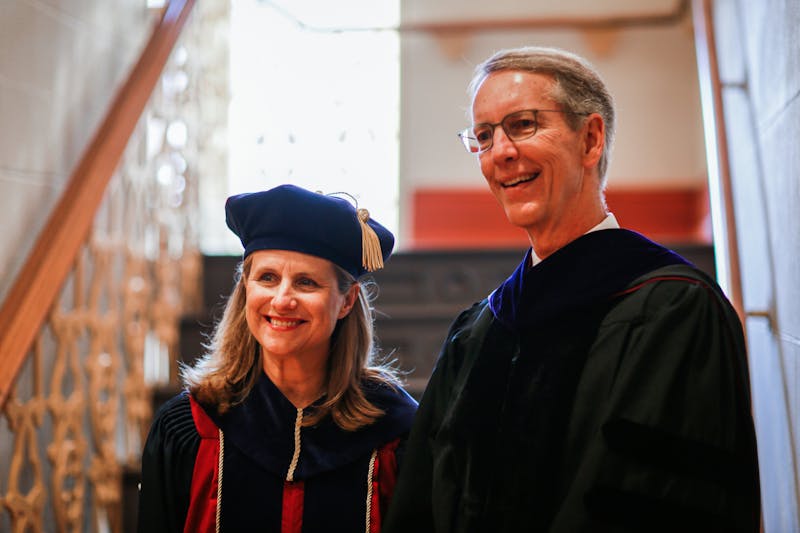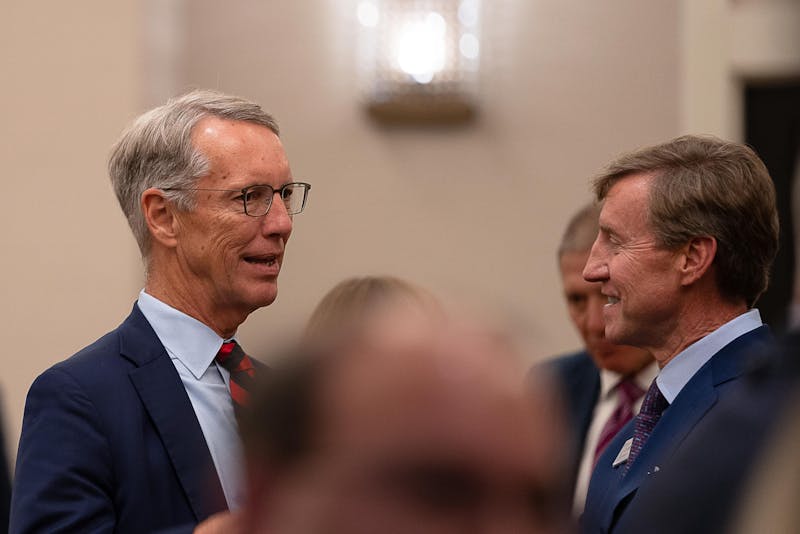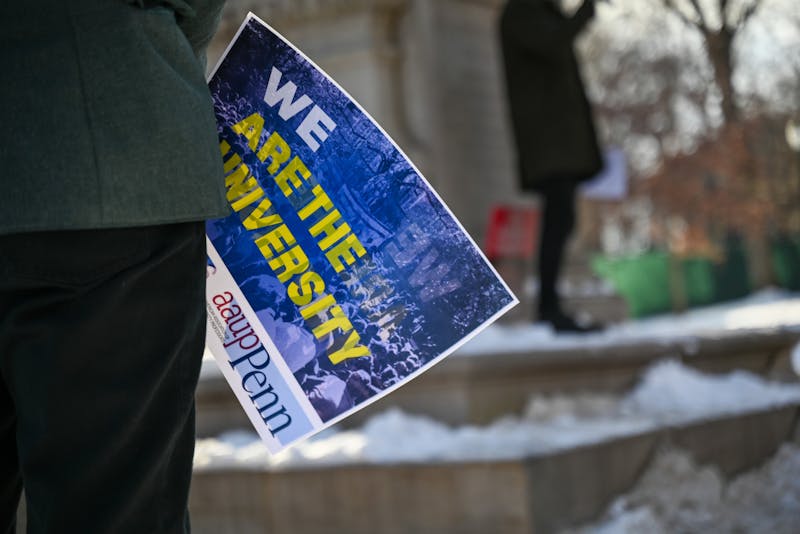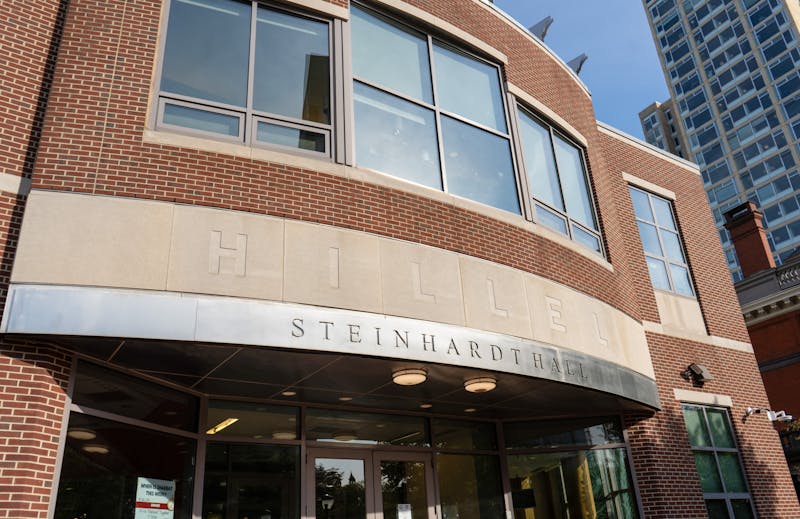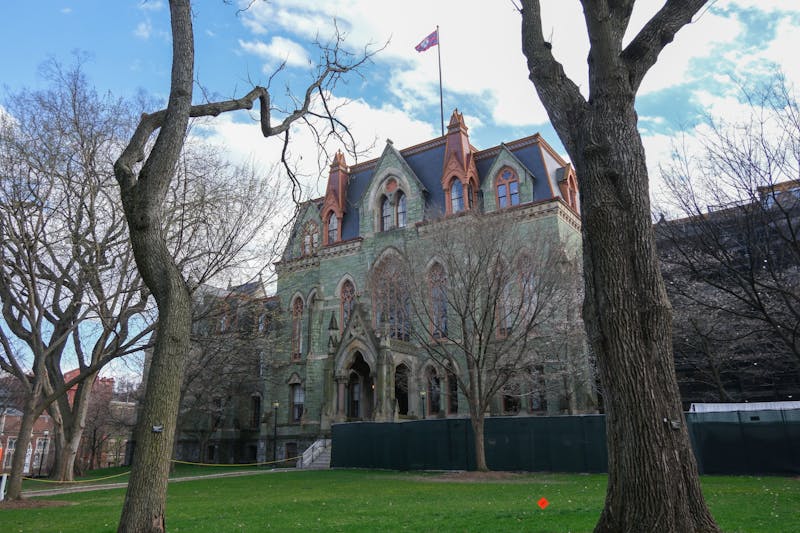
Four months have elapsed since former Penn President Liz Magill resigned, and the University Board of Trustees has yet to announce any steps toward the search for the University's next permanent president.
The Board of Trustees has not yet made an announcement on the status of the presidential search process for Magill’s replacement, nor have members of the committees involved in the search been named. This marks a change from the three most recent previous searches, when the Board of Trustees started the process within two months of the former president’s resignation announcement.
A University spokesperson and Board of Trustees Chair Ramanan Raghavendran declined to comment. The Daily Pennsylvanian could not verify whether students, faculty members, or staff have been contacted about involvement in the search process.
The presidential search process begins when the Board of Trustees chair convenes a Consultative Committee, which is composed of trustees, deans, faculty, and students. The Consultative Committee identifies “priorities, issues, challenges, candidate qualifications, and other factors important to the constituencies represented by the members of the committee,” according to the Faculty Handbook.
Former Penn President Liz Magill resigned on Dec. 9 of last year amid backlash over antisemitism controversies. Three days later, former Perelman School of Medicine Dean Larry Jameson was appointed interim president. 130 days later, no Consultative Committee has yet been announced.
In comparison, former Penn President Sheldon Hackney announced his resignation on April 19, 1993, and the Board of Trustees announced the formation of the Consultative Committee on May 4 of that year — 20 days later.
When former Penn President Judith Rodin announced that she would be leaving the University on June 26, 2003, the Board of Trustees created the Consultative Committee two months later on Sept. 9, 2003. Former Penn President Amy Gutmann announced her resignation on July 7, 2021, and the Board of Trustees appointed the Consultative Committee on Sept. 7, 2021.
The Consultative Committee must include at least four current trustees, four faculty members, one dean, one undergraduate student, one graduate student, and one staff member. The faculty members are chosen by the Faculty Senate Executive Committee, and the rest of the members are selected by the committee chair — the chair of the Board of Trustees.
As the next step in the process, the Board of Trustees chair will then select members from the Consultative Committee to join a Search Committee. The role of the Search Committee is to identify and recruit candidates who meet the criteria outlined by the Consultative Committee.
The Search Committee will then make recommendations to the Executive Committee of the Board of Trustees, who will present a final nomination to the Board for all Trustees to vote on.
“We need to remind ourselves that it's a lot easier to do a presidential search and a presidential transition when they're scheduled,” Professor of education and history Jonathan Zimmerman said. “The departure of Liz Magill was entirely unscheduled, and it was without precedent in the history of the institution.”
Gutmann’s departure, unlike Magill’s, was planned. On June 30, Gutmann’s contract was set to expire after a 2016 extension made her the longest-serving President in Penn’s history. Magill’s tenure was the shortest of any Penn president, at only 526 days.
Magill’s resignation announcement came amid unprecedented national scrutiny over her remarks at a congressional hearing of the United States House Committee on Education and the Workforce, and two months after several alumni and donors called for her resignation following the Palestine Writes Literature Festival and Hamas' attack on Israel.
Minutes after Magill’s resignation, former Board of Trustees Chair Scott Bok — who oversaw the last presidential search — also resigned. He was succeeded on a permanent basis on Jan. 4 by Ramanan Raghavendran, the former chair of the School of Arts and Sciences Board of Advisors.
In a guest column published in the DP in February of this year, Bok stressed that the search for Magill’s successor will look very different from previous presidential searches. He wrote that the turmoil last semester "shattered" the idea of broadly shared values across the University, which have driven previous searches.
He explained that while the Consultative Committee held thorough discussion throughout the search, several major beliefs involving Penn's free speech policies, shared governance, and faculty and student diversity "did not require discussion or debate."
Former professor of practice at the Graduate School of Education Joni Finney explained that it is not unusual for the presidential search process to take a long time, especially in times of turmoil, and that the role of an interim president is to stabilize the University.
“I am not at all surprised and it's taking some time, and I would actually hope it takes longer,” she said. “I think we need a couple of years to figure this out.”
She explained that the Board specifically should take time to define its role at the University.
“They need to look at the structure and composition of the Board itself — including the number of board members — and really make sure the board is putting Penn first,” she said. “The board is the governing body for the University, and they've got to figure out their own role in all of this. I think it's become very confused.”
A recent analysis by The Daily Pennsylvanian found that Penn's Board of Trustees — which has 50 members — is the second-largest in the Ivy League, and exceeds both the Ivy League average of 37 members and the national private institution average of 28 members.
Zimmerman also said he believes that more faculty engagement in the process of the presidential search would be better for the University.
“Faculty have become progressively less involved and less powerful in decision making, and administrators become progressively more powerful,” he said.
It remains unclear whether the Board has begun assembling a Consultative Committee and when the process to select Penn’s next president will begin.
The Daily Pennsylvanian is an independent, student-run newspaper. Please consider making a donation to support the coverage that shapes the University. Your generosity ensures a future of strong journalism at Penn.
Donate







